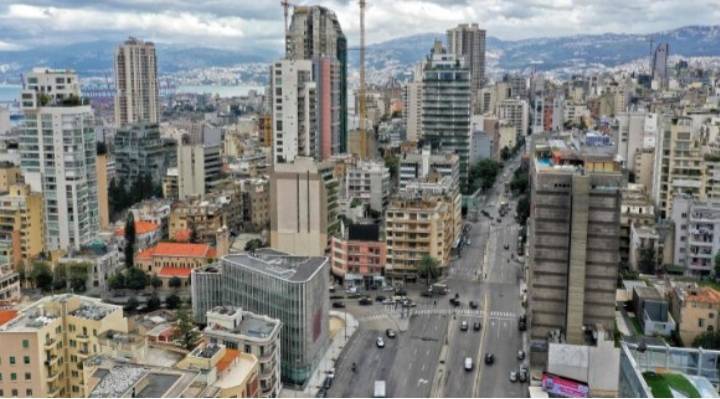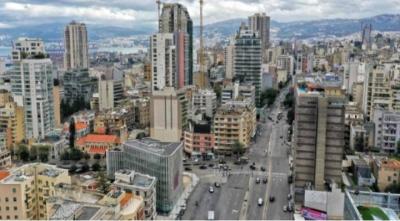Starting from Monday, the 20th of this month, a set of loans launched by the Housing Bank will be issued, coming after a pause of about two years and four months due to the General Housing Authority's halt on accepting any housing loan applications. The Housing Bank offers loans for purchasing homes, renovating homes, and installing solar energy systems in houses. The bank set the loan limit for purchasing a residential apartment at one billion Lebanese pounds for a space of 120 square meters, repayable over 30 years, with an interest rate not exceeding 4.99%. It is aimed strictly at Lebanese individuals with limited income, whose income must be between 6 million and 20 million pounds, and they must not have benefitted from any housing loans before or own a registered house in Lebanon.
Additionally, the maximum amount allocated for home renovation loans is 400 million pounds, repayable over 10 years at a 4.99% interest rate. Solar energy loans range from 75 to 200 million pounds, repayable over 5 years at a 4.99% interest rate. While these loans represent a glimmer of hope for low-income individuals to obtain a loan to purchase an apartment, they come at a time of severe financial crisis in Lebanon, with significant fluctuations in exchange rates, especially since the loans are granted in Lebanese pounds while most transactions have become dollar-based. All these challenges suggest that these loans come at an inconvenient time.
Can they still revitalize the sector and the economy? Mirai Al-Qarab Ebi Nasr, Vice President of the Real Estate Developers Association, states that it is currently very difficult to convince developers to sell residential units in Lebanese pounds due to severe exchange rate fluctuations, which can be considered the primary challenge facing housing loans, especially since most of the developers' debts are in hard currency. Al-Qarab Ebi Nasr confirmed to "Al-Jumhuriya" that very few developers might accept to sell in Lebanese pounds, and only in two instances: if a real estate developer still has debts to the bank in Lebanese pounds, or if the apartment is ready for occupancy and the developer has accumulated debts, in which case they might accept a sale provided that they promptly purchase dollars with the received pounds to preserve the value.
She pointed out that the real estate activity generated from both scenarios will not be sufficient to boost the real estate sector or save it, as it does not encourage developers to start new projects since they cannot invest on the basis of installments in Lebanese pounds, especially with all building materials now priced in dollars and their prices rising globally.
Al-Qarab Ebi Nasr also noted that the housing loan limits being offered today represent a small backing for a larger amount that the loan seeker must possess. It is currently impossible to find an apartment for one billion pounds, equivalent to 33,000 dollars, while prices for apartments outside the capital start at 50,000 or 60,000 dollars, meaning that the loan seeker would need at least half of the apartment's value available in cash. This loan appears to target those who receive their salaries, or part of them, in dollars; those unable to provide half the value in cash cannot benefit from it.
In response to a question, Al-Qarab Ebi Nasr clarified that while the funding for the loans from the Kuwaiti Arab Fund is in hard currency (dollars), the Housing Bank is legally required to provide it to borrowers in Lebanese pounds. She believes this should be legally amended, just as attempts to circumvent the law are made by issuing circulars or ministerial decisions allowing pricing in dollars.
Regarding the availability of apartments for sale after the halt in investments and construction works due to the financial crisis and the rush to buy properties as a means to withdraw trapped funds from banks, she stated, "There is no longer a stock of properties in Lebanon as before. Most available apartments are owned by those who acquired them through bank checks to withdraw their money, and they are now trying to sell them for fresh dollars." She added, "There is a scarcity of apartments not sold in fresh dollars," noting that between 15 and 18 billion dollars in developers' debts were settled during the crisis, and there is also a shortage of ready-to-occupy apartments.
She pointed out the issues with apartments under construction that relied on housing funds, which were halted, leaving developers unable to continue building due to their trapped cash in banks, which has become worthless. Consequently, the borrower who secured a down payment for the apartment has also been negatively affected; recovering their funds is pointless as they now have little value, and simultaneously, they cannot afford to keep paying for a new apartment since its price has increased at least fivefold.
In contrast, Al-Qarab Ebi Nasr predicted higher demand for solar energy loans than others, as they help citizens alleviate the electricity crisis. She explained that the installation process takes one day, after which the engineer receives payment and immediately converts it to dollars, unlike housing loans which take longer and face greater challenges such as rising global prices for construction materials, from steel to cement, and increased oil prices globally impacting shipping costs and local currency fluctuations.
After more than two years of the financial crisis, how have apartment prices changed in different regions? Al-Qarab Ebi Nasr stated, "Outside the capital, one can find a small apartment priced between 70,000 to 80,000 dollars, while in the capital, prices do not fall below 150,000 to 200,000 dollars. For example, it is barely possible to find a studio in Ashrafieh for 150,000 fresh dollars, knowing that before the crisis, prices were not less than 200,000 to 250,000 dollars." She believes securing housing today is going through a critical phase, emphasizing that conditions in the sector cannot improve without a housing plan and tax incentives for real estate developers to encourage new projects, in addition to ensuring stability in exchange rates; otherwise, no one will be encouraged to start new projects.




